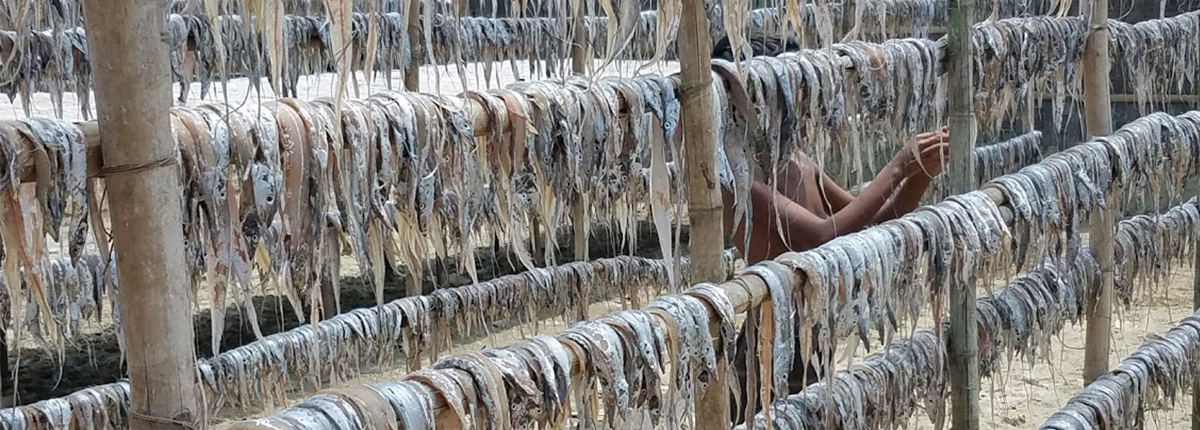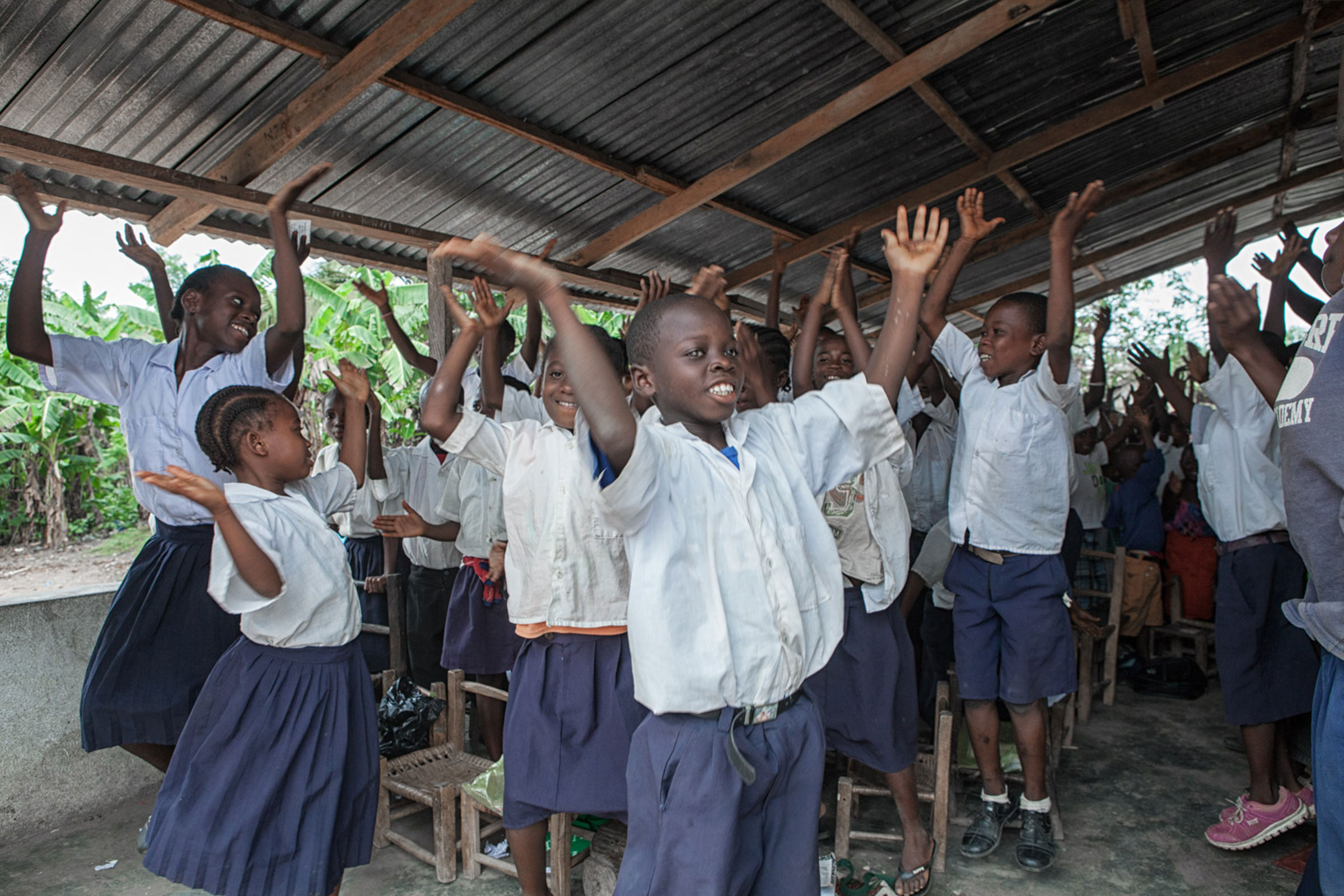
Partnering with local champions and governments to strengthen systems to reduce child labor
Today, nearly 160 million children worldwide are engaged in child labor. An estimated 79 million of those children perform hazardous work, using dangerous tools like knives or machetes to maintain cocoa and coffee crops or process dried fish, to provide a few examples from the agriculture and fishing industries. Many of these children work up to 13 hours in the sun without protective gear, and suffer exposure to harmful materials including chemical pesticides and fertilizers. These clear dangers can, and do, cause frequent health issues. Child labor also prevents children from accessing quality education, trapping them in a cycle of poverty with little hope for a better future.
The U.N. International Children’s Emergency Fund and the International Labour Organization in 2021 reported a significant drop in child labor rates globally over the previous two decades. That number represents a decline of 86 million reported cases from 2000-2020, or from around 16% of children globally to 9.6%. This progress represents the prevention and policy work of committed governments and communities globally, with support and targeted programming by civil society and experienced nonprofit organizations like Winrock, with funding from the U.S. Department of Labor and the private sector. As we observe World Day Against Child Labor 2023, we acknowledge that significant challenges remain, due to global conflict, the COVID pandemic and ongoing economic crises – all of which contribute to increased poverty and other conditions that lead to child labor. Child labor rates are again on the rise, increasing by 8.4 million over the past four years. Renewed dedication and redoubled commitment to providing children with universal social protection is required.
For over two decades, Winrock has partnered with communities, governments, local organizations and the private sector to prevent child labor in Africa, Asia and Latin America. We work with those partners to transform global child labor policies, improve school access and advocate for children’s rights. Winrock recognizes that positive change can only be sustained through collaborative partnerships that create space for stakeholders to listen to each other – and act together on local priorities. Local partners are the leaders and drivers of lasting change. Winrock dedicates efforts to strengthen capacity and encourage local ownership by working directly with our partners to understand their goals for eliminating child labor, share and act on their recommendations, and co-identify areas for continued intervention.
Here are four takeaways from USDOL-funded projects covering 11 countries across three continents that demonstrate selected impacts of Winrock’s collaboration with local champions and government partners to sustainably strengthen systems that combat child labor.
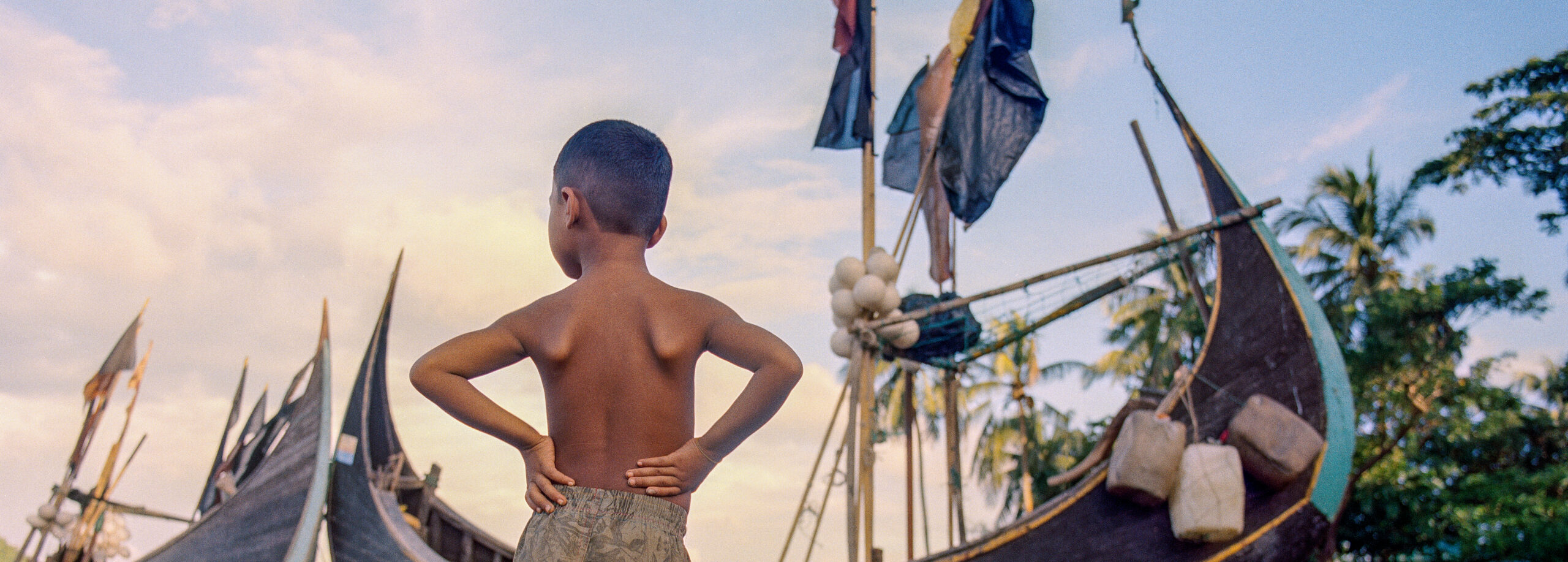
CLIMB: Child Labor Improvements in Bangladesh
Winrock’s CLIMB project worked with a wide range of partners in Cox’s Bazar, a port city and home to one of the world’s largest refugee camps located on the southeastern coast of Bangladesh. Over four years, CLIMB substantially strengthened the capacity of local Civil Society Organizations to combat child labor and forced labor, improving working conditions for children and families involved in the dried fish processing industry and other sectors in the region.
CLIMB partnered with “champion” CSOs dedicated to reducing and preventing child labor, strengthening their understanding of Bangladeshi laws and regulations for protecting children. In collaboration with Bangladesh’s local, regional and national governments, these CSOs amplified awareness about the problem ─ and potential solutions and services ─ among vulnerable communities, including specific legal protections and other services available to victims. The project bolstered service delivery networks to better address the needs of affected children and their families, and successfully advocated to government for stronger policies and additional resources to reduce child labor. Community-based organizations in the region now are better able to work together, link people to services and effectively push for enforcement of grievance mechanisms. Winrock supported five local- and national-level CSOs to partner with each other, adapt, learn and share their experiences and challenges. This collaboration reduced hazardous work and forced child labor in the dried fish sector. CLIMB provided on-the-job technical advice, mentoring and training to 1,114 CSO staff and community members, helping 856 families link to services through government or CSO programs, and reaching over 5,000 people through community-awareness campaigns with local partners.
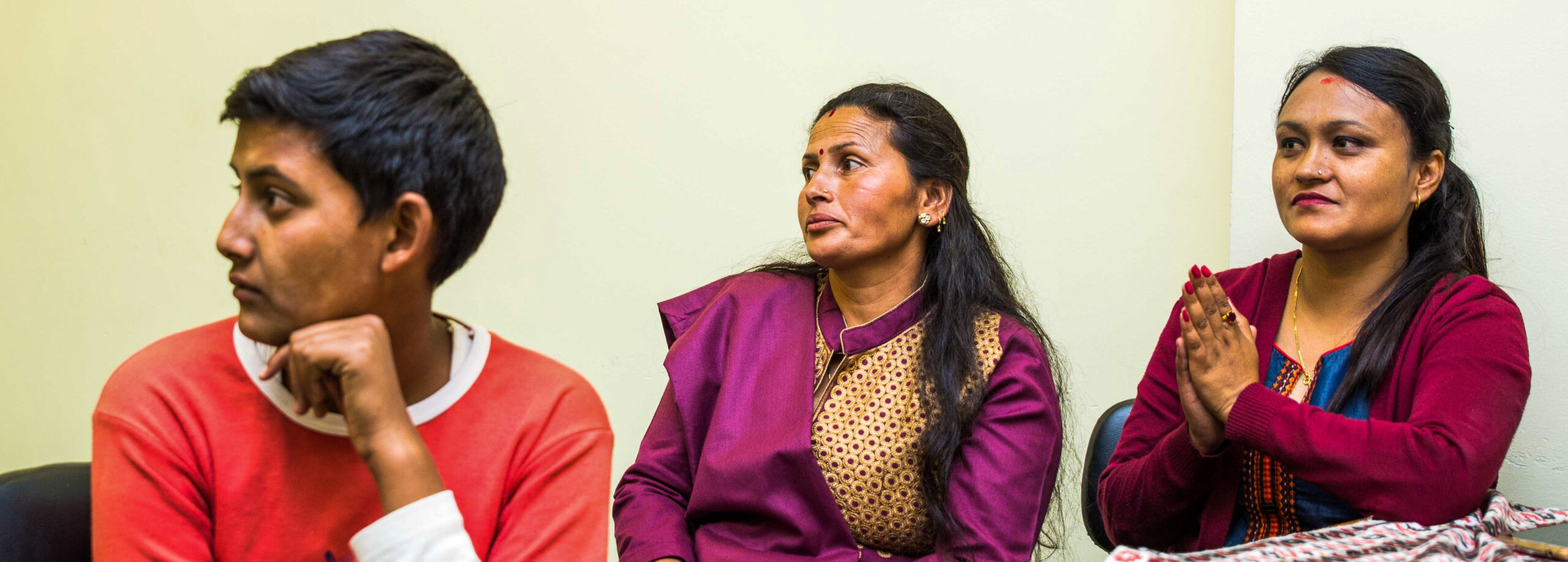
CLEAR II: Country Level Engagement and Assistance to Reduce Child Labor
The CLEAR II project team strengthened government systems at the local, regional, and national levels to detect and prevent child labor across six countries. The project provided technical assistance and coordinated with government ministries in Nepal, Burkina Faso, Liberia, Belize, Panama and Jamaica to reinforce policy, strengthen monitoring and enforcement systems, and enhance the individual capacity of officials.

CLEAR II engaged with selected government officials, identified as “Champions for the Cause,” to push for incorporation of key changes in national structures, systems and polices to address child labor. The project supported host governments to improve labor inspections, laws and policies, and create or update action plans and rapid reference cards to respond to potential child labor issues. The government champions committed to each respective country’s goals for fighting child labor, facilitating sustainable change and knowledge transfer, and contributing to an enabling environment for long-term impact. After CLEAR II ended, Liberia’s government officially launched and adopted a new National Action Plan Document on the Elimination of the Worst Forms of Child Labour and endorsed Hazardous and Light Work Lists. Belize has since launched its new National Labor Policy and Strategy 2022-2025, and Jamaica has established a task force to oversee a street and working children framework of action following a study conducted during the project. Click here for more information on CLEAR II best practices and lessons learned.
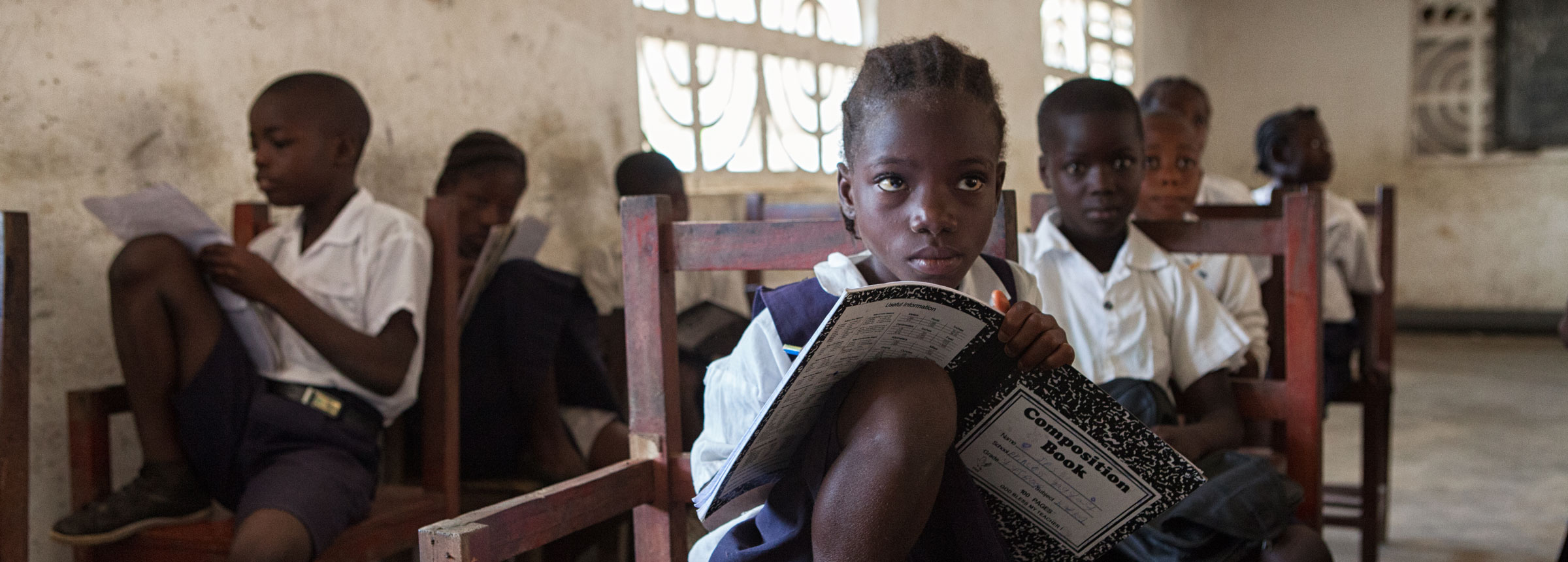
ATLAS: Attaining Lasting Change for Better Enforcement of Labor and Criminal Law to Address Child Labor, Forced Labor and Human Trafficking
ATLAS is a global initiative that works with governments in Thailand, Paraguay, Liberia and Argentina to strengthen systems to reduce child labor, forced labor and human trafficking. Key approaches used by the ATLAS team include working with governments to update and reinforce legal frameworks, improve enforcement and enhance coordination with and between important stakeholders including community organizations and the private sector. The team works with partners to implement a comprehensive, nine-step model for introducing change, called the Differentiated Model of Process (DMOP). The model, along with technical support for each step in the process, was designed to ensure broad uptake and facilitate sustainable systemic change even after the project’s completion.
Across all four countries, ATLAS trained almost 3,000 people, supported 30 different government institutions and developed 16 resources for use by government officials. These efforts have shown impressive results, including the Liberian government’s recent passage of a new law to prevent human trafficking. ATLAS’s work in Liberia built upon the strong foundation laid by CLEAR II, and contributed to the Liberian government’s approval of Hazardous and Light Work Lists on child labor. The project’s work in Thailand helped Thai officials launch new rescue operations and identify new types of victims. Paraguay has improved its training for local police and established new human trafficking committees to help identify and prevent child labor, and in Argentina, ATLAS activities helped to catalyze improved government coordination to address child labor in the garment sector.
MATE MASIE: Making Advances to Eliminate Child Labor in More Areas with Sustainable Integrated Efforts
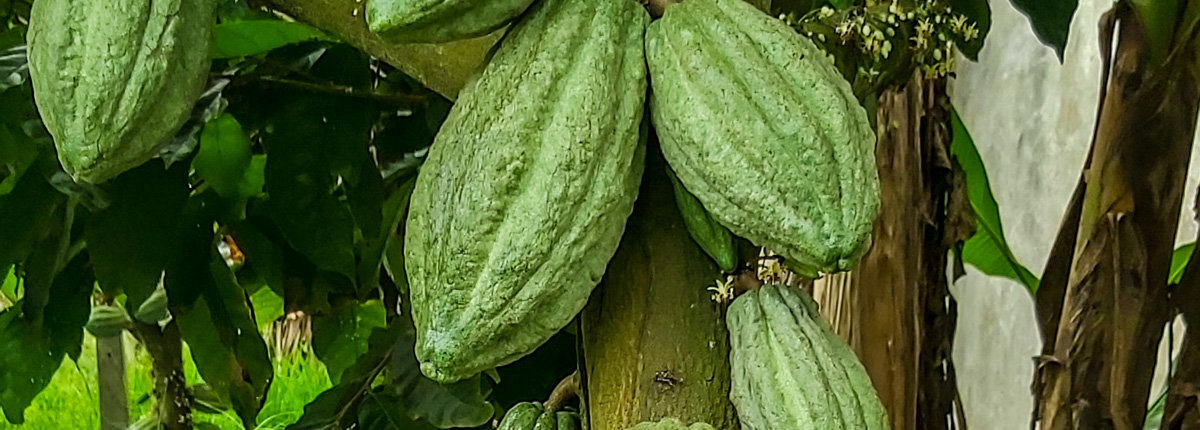
Winrock’s MATE MASIE project works with cocoa cooperatives in Ghana ─ one of the largest cocoa producers in the world ─ to reduce child labor in supply chains. The project helped to establish and train locally-led District and Community Child Protection Committees across its four project districts, reaching 20 communities that are now implementing district-specific child labor action plans. Mate Masie coordinates closely with partner cooperatives t to develop community information centers and conduct awareness-raising activities including durbars (meetings with traditional leaders) and church/mosque visits. The project also developed mobile data collection tools as part of a new Child Labor Monitoring and Remediation System, now being used by cooperatives to identify vulnerable households. Partner cooperatives are training farmers and purchasing clerks on cocoa traceability guidelines, helping to form or reactivate Village Savings and Loan Associations, and offering new livelihood opportunities and alternatives to families with children susceptible to child labor. Click here to read more about MATE MASIE’s recent activities and progress.
Let’s continue working together to end child labor – everywhere!
Related Projects
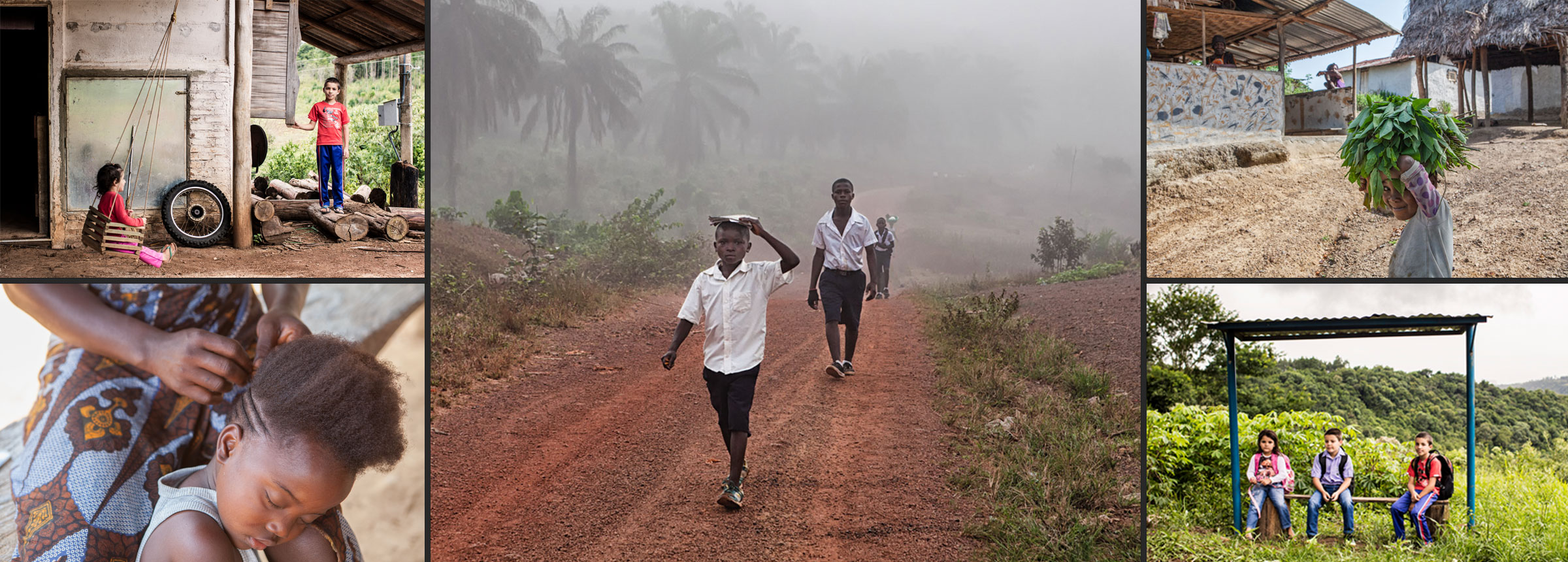
CLEAR II
Heightened awareness of the many ills caused by child labor has led to a global decrease in its incidence. Nevertheless, estimates are that 168 million children worldwide are still engaged in child labor. This program develops the capacity of interested governments to create and implement policies that result in a meaningful reduction of child labor.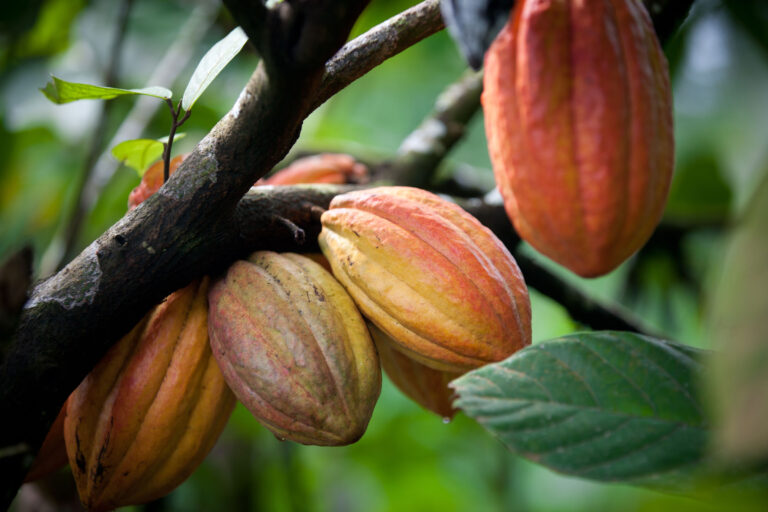
Making Advances to Eliminate Child Labor in More Areas with Sustainable Integrated Efforts (MATE MASIE)
The MATE MASIE project strengthens capacity, connections, and accountability across child labor enforcement and monitoring within cocoa cooperatives in Ghana. The project builds the capacity of cooperatives to support vulnerable member households both directly and by linking their members with other service providers. The project is funded by the U.S. Department of Labor’s Bureau of…
Attaining Lasting Change for Better Enforcement of Labor and Criminal Law to Address Child Labor, Forced Labor and Human Trafficking (ATLAS)
The ATLAS project is a global initiative that has worked in four countries across Latin America, Africa, and Asia to strengthen enforcement of labor and criminal law to address child labor, forced labor and human trafficking. ATLAS works collaboratively with host governments to bolster the legal and criminal frameworks surrounding these issues, improve the enforcement…